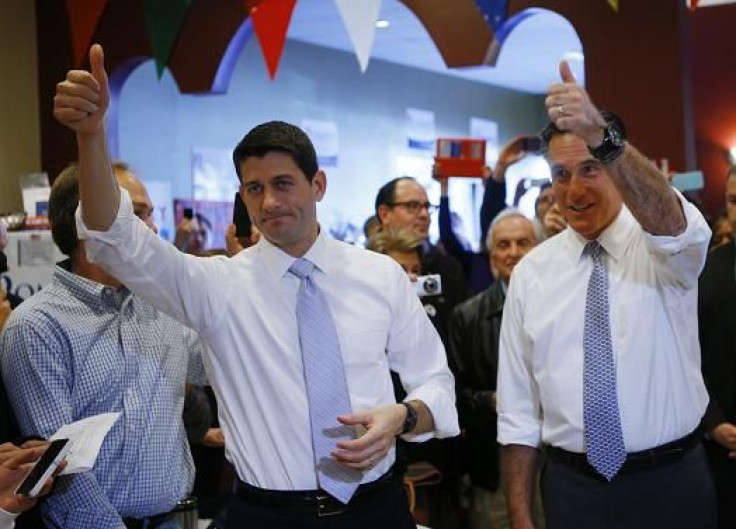In Election Day Blog Post, Top Romney Economic Advisor Appears To Jump Ship
Analysis

Hours before the first precincts began to report any vote tallies, and even before the first exit polls came out Tuesday night, a top economic adviser to the Romney campaign appears to have hoisted the white flag and jumped off the party ship, endorsing an initiative that's critical of the Republicans and their presidential nominee.
In a post on his personal blog, Stanford economics professor John Taylor, who is one of the top four economists the Romney campaign has relied on to formulate policy, wrote about the need to tackle the impending “fiscal cliff,” an approaching package of tax increases and spending cuts nearly all economists believe will plunge the U.S. economy back into recession unless it is averted.
That Taylor was writing about the “fiscal cliff” was not per se out of place. But in his post, he said avoiding a catastrophic path in the next few weeks “will take a bipartisan policy effort,” with no mention of Mitt Romney being the president in 2013. Even more eyebrow-raising is the fact Taylor endorses an initiative called “Strengthening of America – Our Children’s Future,” an effort by four former U.S. senators to build support for an across-the-board solution to the looming fiscal crunch following the election.
“Neither party seems willing to address this issue with either common sense or simple arithmetic,” the website for that initiative reads, later adding that “neither presidential candidate has stepped up” to embrace a plan to solve the fiscal issues facing the country.
Taylor’s blog posting -- which is akin to him putting a “Both Candidates Stink” sign on his virtual front yard on Election Day -- is surprising given his high status within Romney’s campaign. Congressional newspaper The Hill considers Taylor the leading candidate to replace Ben Bernanke as Federal Reserve chairman should Romney be elected. And Taylor has been a hard-working champion for the Romney camp on economic issues, most recently jumping into the fray to argue President Barack Obama should not get a pass on the anemic recovery just because the financial crisis that preceded it was so violent.
Taylor’s move on the fiscal cliff issue does fit into the dynamic currently brewing amongst Washington policy insiders, who are positioning themselves to negotiate a compromise during the post-election lame-duck session of Congress.
The Committee for a Responsible Federal Budget, an organization that has taken the lead agitating on fiscal issues for the past few weeks, has been using CEO endorsements to push for a “grand bargain” that allows the fiscal cliff to be averted -- through raising the debt ceiling -- and then brings in “gradually phased in cuts, delaying much of the deficit reduction until when the economy has had more time to recover.”
It’s likely Taylor is angling for a seat at the table at what will be the next big topic in Washington. Still, the timing is suspect.
© Copyright IBTimes 2024. All rights reserved.











